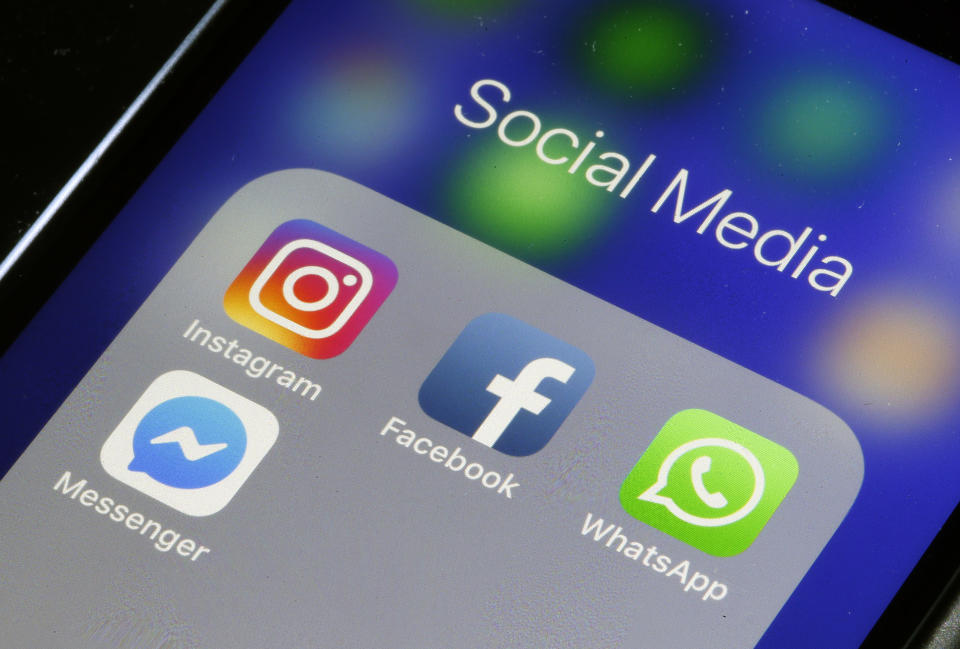A case for keeping Facebook's companies together: 'Businesses succeed as well,' Facebook exec says
There’s been no shortage of Big Tech scrutiny this year and debate over whether some of Silicon Valley’s largest players should be broken up.
Facebook (FB) is among the firms caught in the crosshairs of policymakers’ crackdown. Democratic presidential candidate Elizabeth Warren has outlined a plan to force Facebook to “unwind” previous acquisition targets WhatsApp and Instagram, and the Federal Trade Commission has launched an anticompetitive probe into the social media giant.
But according to one Facebook executive, keeping the flagship platform and its sister companies together is a win-win for both the company and the users and businesses on the platform.
“The way in which these platforms are focused on a singular mission around connecting the world, giving people the power to build community, express themselves, is the common sort of focus, and the way the company is structured to support that across the applications is something you see the benefit of every single day,” Mark D’Arcy, Facebook chief creative officer, said at Yahoo Finance’s All Markets Summit: Generational Opportunities Thursday in New York City.
Warren’s argument hinges on the notion that as companies like Facebook have grown in size, they have stifled other potentially more innovative platforms from arising, particularly through acquisitions she claims were aimed at absorbing competitors.
“They have used their resources and control over the way we use the Internet to squash small businesses and innovation, and substitute their own financial interests for the broader interests of the American people,” she wrote in a March post on Medium.
While noting he can’t speculate on what a broken-up Facebook would look like in practice, D’Arcy underscored a net benefit he sees in keeping the Facebook ecosystem in its current form.
“Businesses succeed as well,” D’Arcy said. “We just announced today 140 million businesses are using each of the applications and the vast majority of them use all of them in a different way to connect and grow their businesses.”

D’Arcy added that changes in internet consumer behavior have created a new form of competition in the space, even as new social media players – including TikTok and Snapchat (SNAP) — continue to emerge and crowd the field.
“We’re at the start of this massive shift in empowerment,” D’Arcy said. “There were a few people, before with the internet, a few people who had all the power to create what we saw,” D’Arcy said. “There is a fundamental shift that our audience – whether they’re our customers or our businesses or our consumers of content – they're making more content than we are.”
“They have the same tools: They have the [augmented reality] tools, they have the Stories. They’re creators. So your audience has not only the ability to listen, but to create, to co-create, to comment – and that dynamic is a fundamental shift,” he added. “So there will constantly be evolution in the tools and the different applications of platforms, that compete to be the best one for different jobs they want to do, and that's a good thing.”
Leveraging Facebook’s scope
Eva Chen, Instagram director of fashion partnerships, said in the same interview that Facebook’s smaller brands have benefited by leveraging Facebook’s scope and resources as the world’s biggest social media platform by monthly active users.
“I would say from a safety and well-being standpoint, the work that the Facebook team is doing for bullying, for instance, and other safety features, like Instagram really benefits from that,” she said. “Our team is much smaller, like the Instagram team is pretty small. Using Partnerships as an example, it's like a few dozen people around the world. Whereas Facebook – to be able to tap into people in certain markets as well is an enormous benefit.”
Facebook completed its $1 billion acquisition of Instagram in 2012, marking the company’s 40th M&A deal and its third-largest purchase since 2007, according to Pitchbook data.
Watch the complete interview here:
Emily McCormick is a reporter for Yahoo Finance. Follow her on Twitter: @emily_mcck
Read more from Emily:
FedEx CEO: ‘Whistling past the graveyard’ on the U.S. consumer belies a broader slowdown
There won’t be ‘billion-dollar beverage brands’ in the future: Iris Nova CEO
Iris Nova CEO calls his company the ‘Netflix’ of the beverage space
Tech companies like Lyft want your money – not ‘your opinion’
Follow Yahoo Finance on Twitter, Facebook, Instagram, Flipboard, LinkedIn, and reddit.
